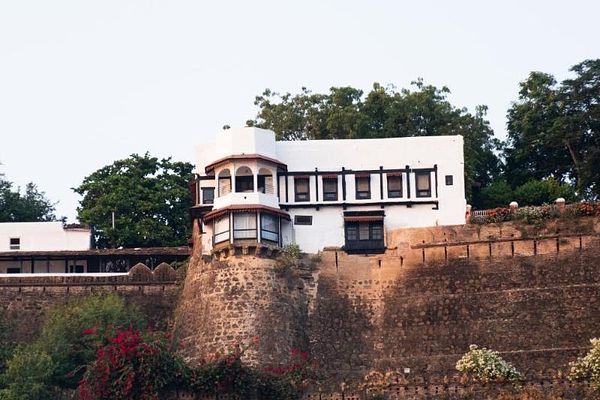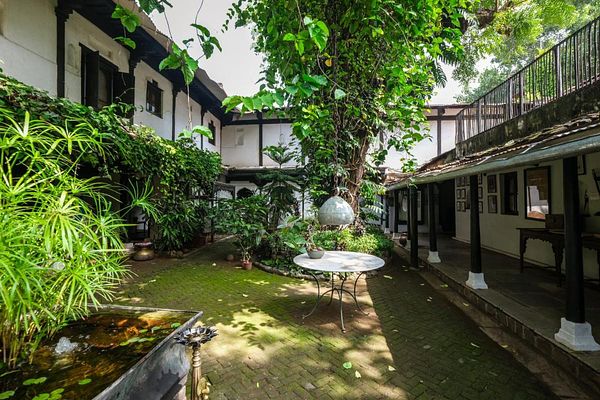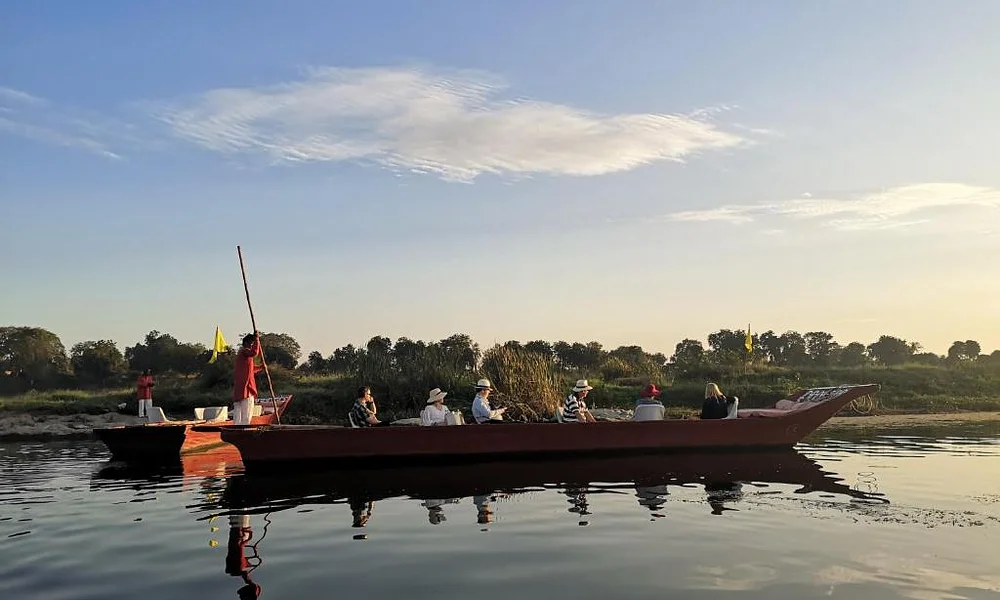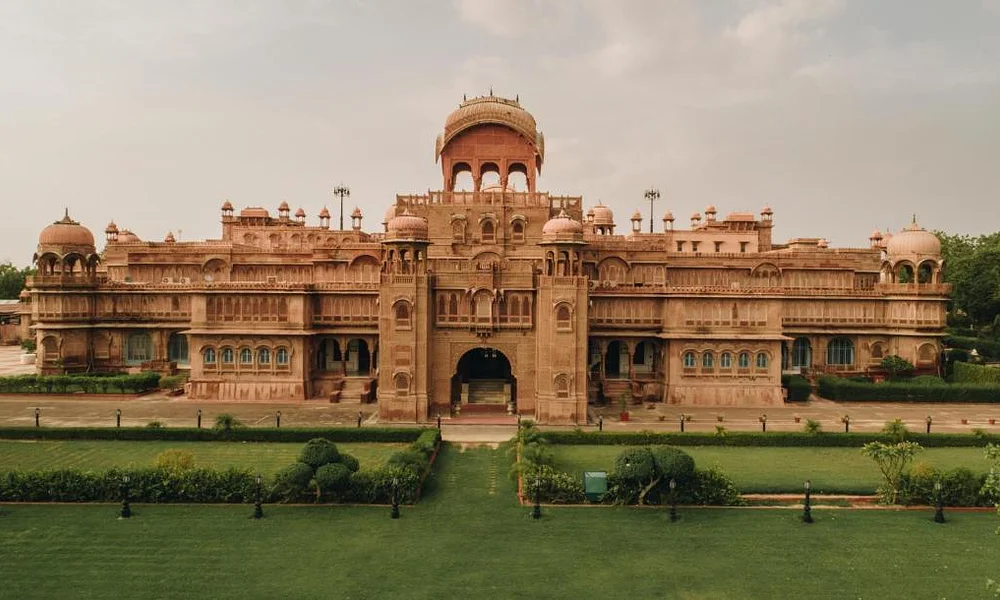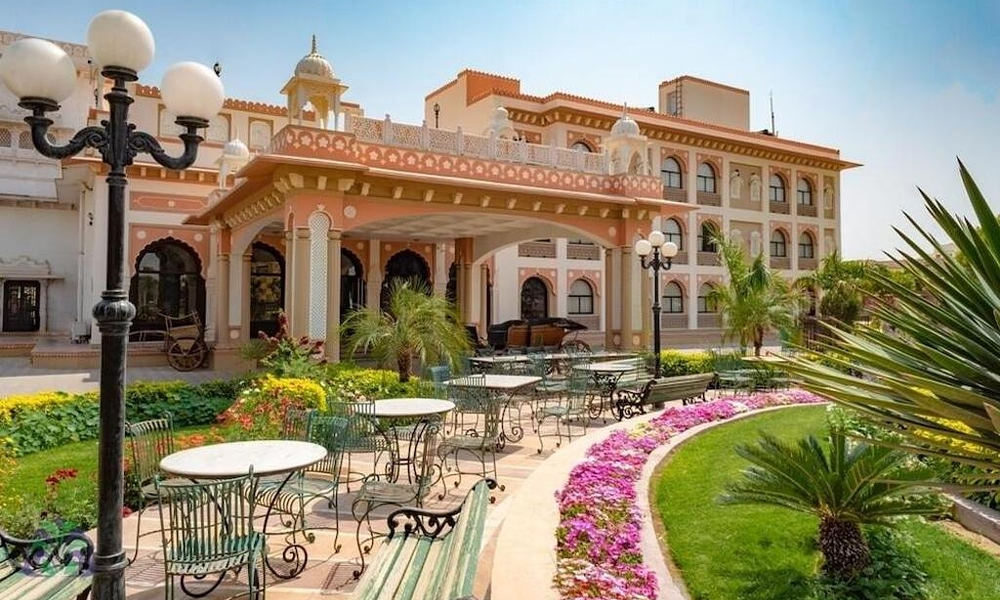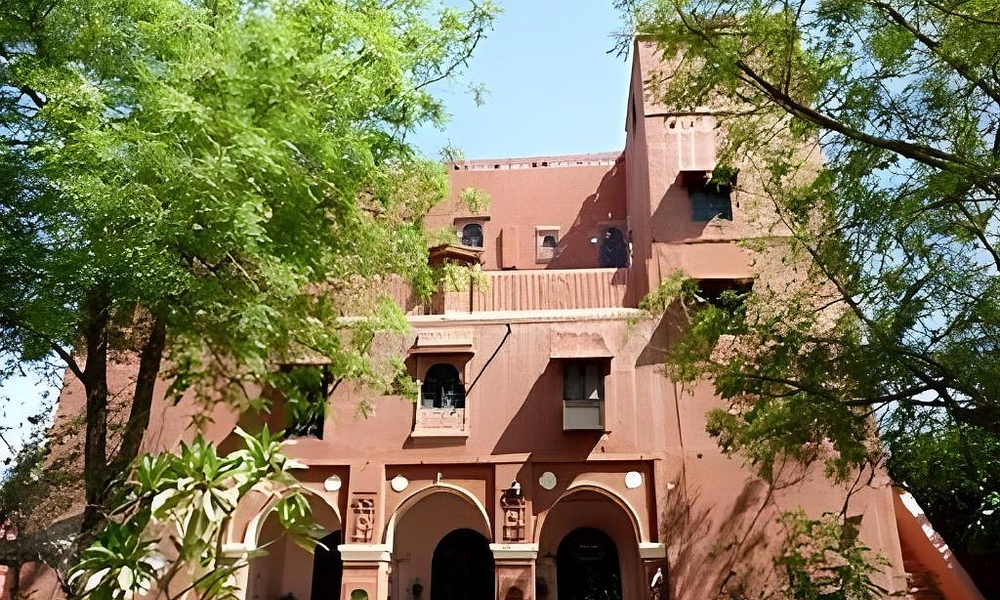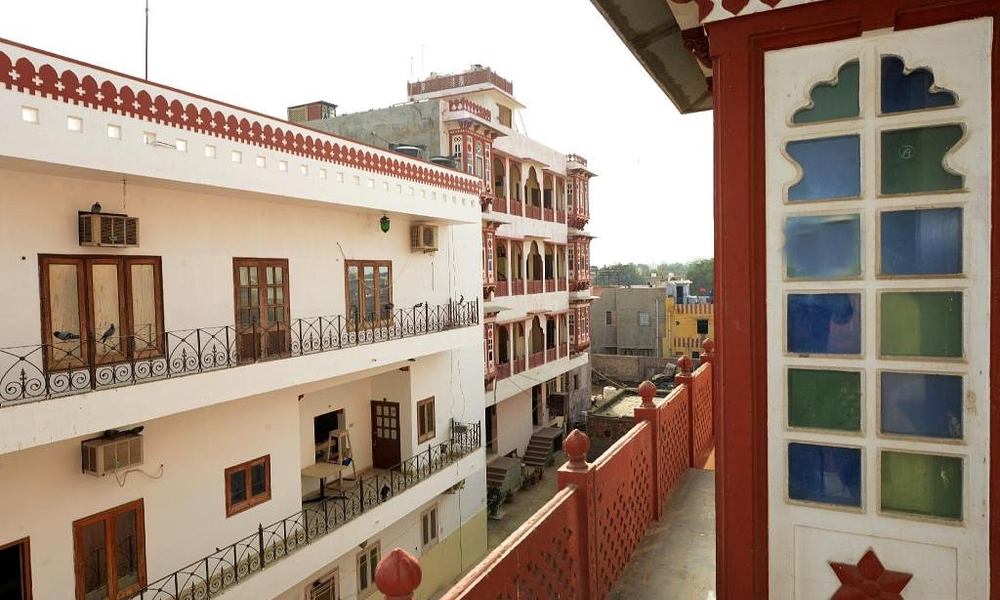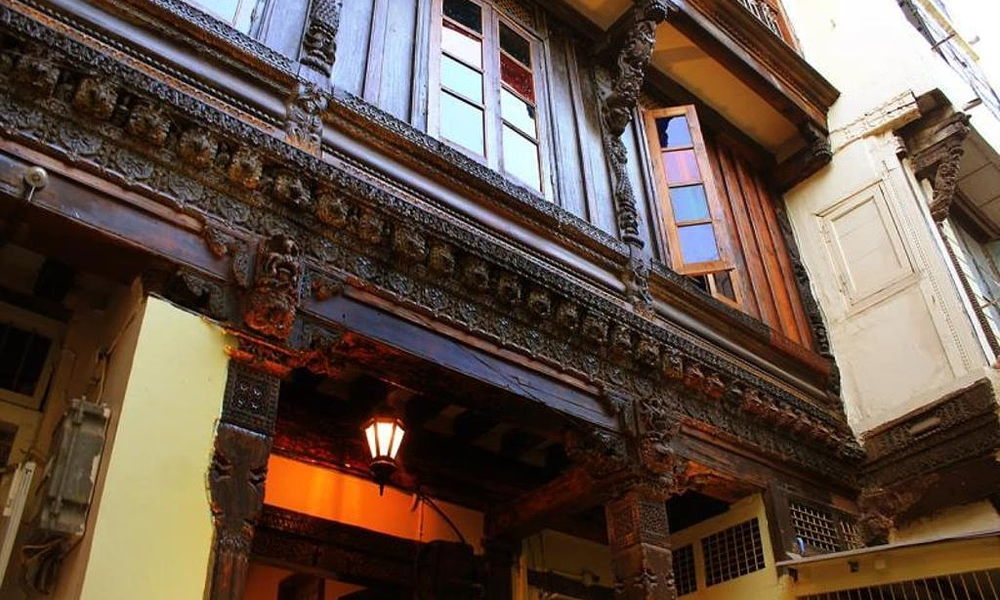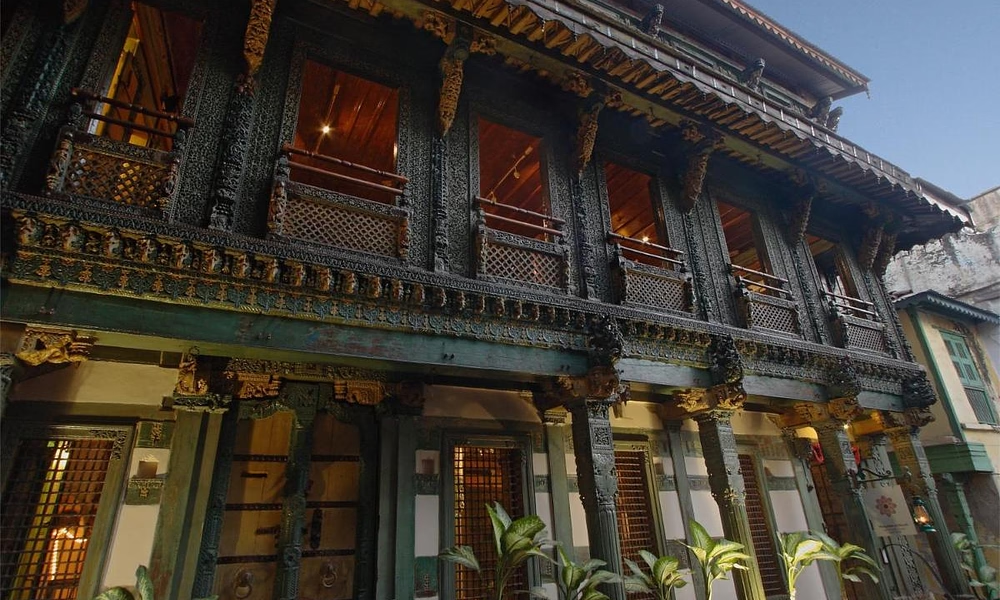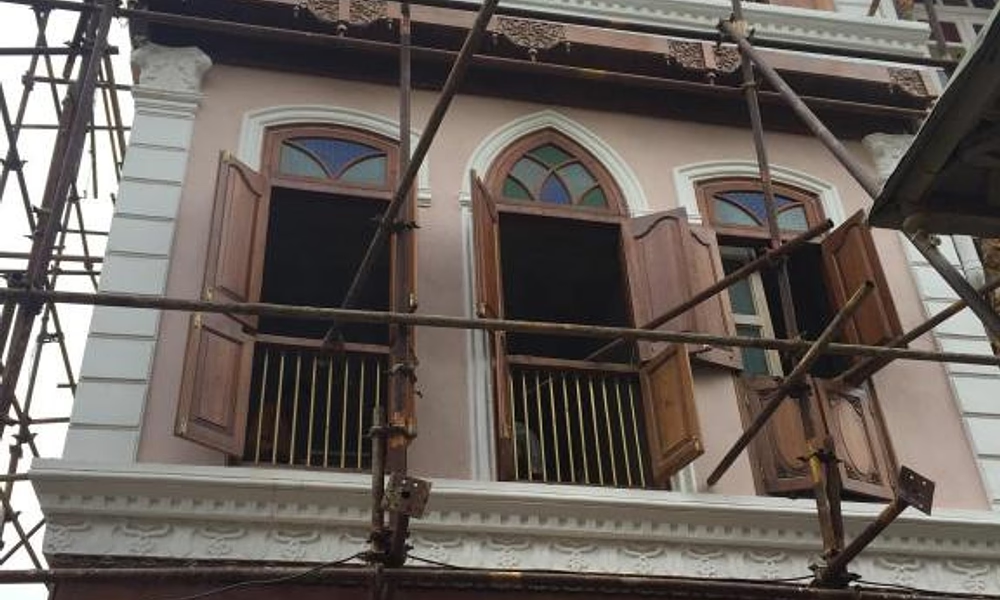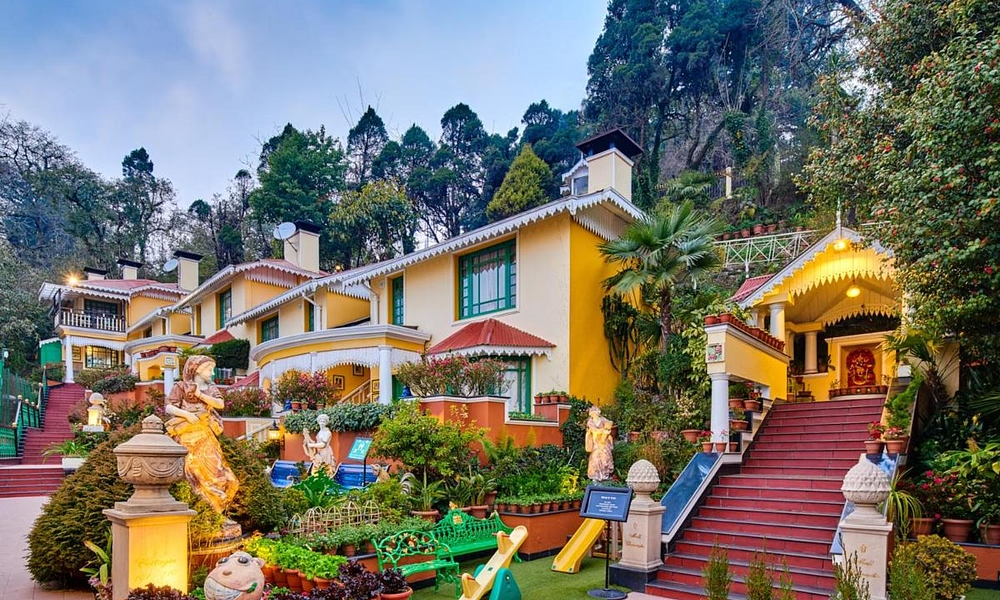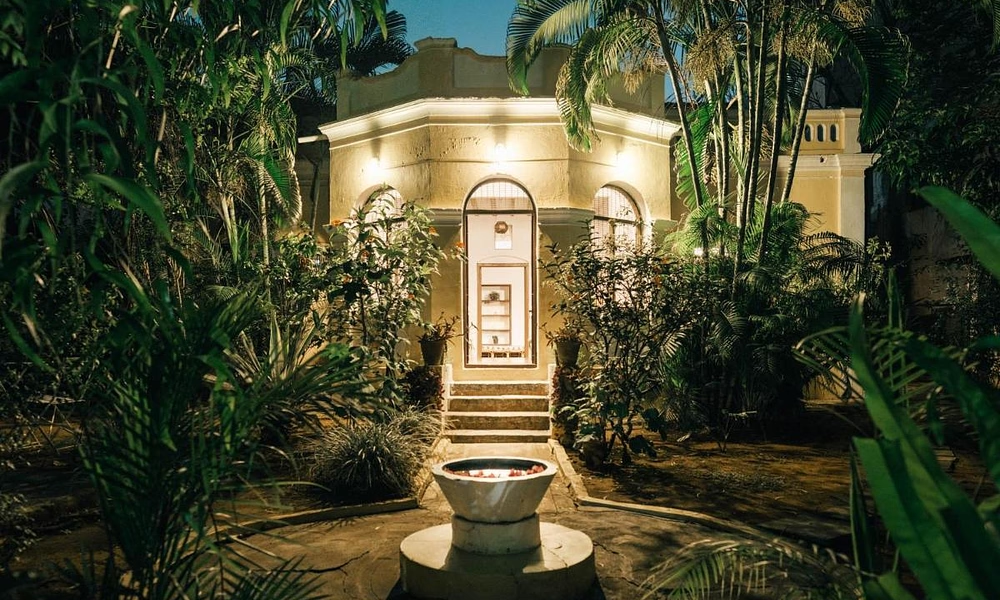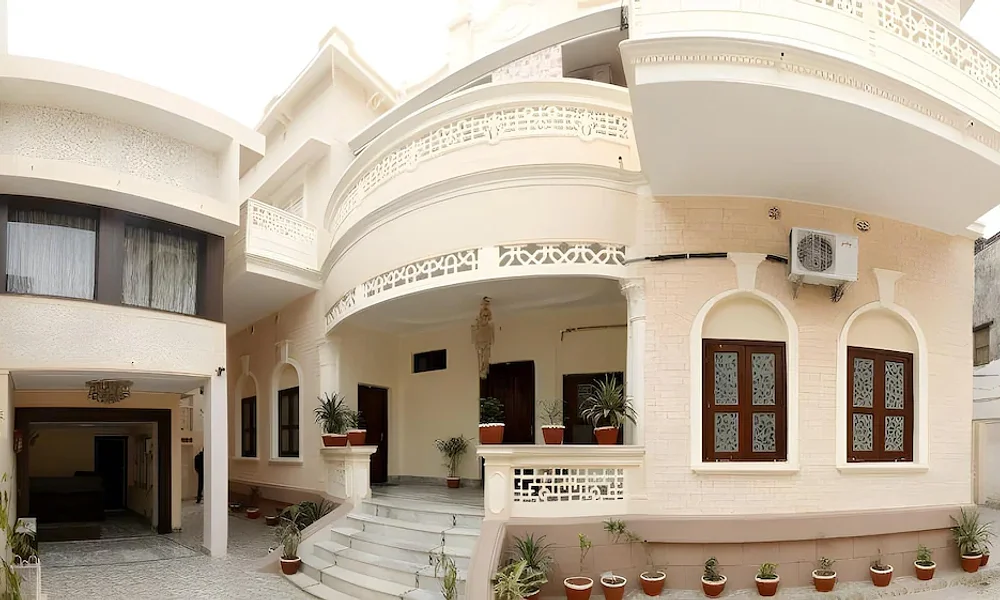Wellness activities in the property include Hatha yoga on the southwestern turret and traditional Nimadi massages in Lingarchan. Meanwhile, the young ones can enjoy the Baccha Bagh, the menagerie, and garden activities led by Ahilya School teachers. Guests can also relax at the hotel’s pool or visit the Ahilya Organic Farm, see their meals grow, and take a self-guided village walk through Naodatodi and Bothu. Evenings can be made unforgettable with candlelight dinners at Boleya Chhatri or al fresco picnics in Mandu.
Every February, Ahilya Fort hosts the Sacred River Festival by the Narmada. It’s four days of singing, music, and dance and is put together by the Devi Ahilya Bai Holkar Charitable Memorial Trust and Ms. Mary McFadden.
A short walk from the hotel takes you to the Rehwa Society, founded by the Holkars in the late 1970s to revive the town’s hand-weaving craft and provide employment to women. The adjoining Ahilya School educates weavers’ children, and both can be visited together in a morning.
Each day begins with the Lingarchan Puja, a centuries-old ritual performed by 11 Brahmins who offer prayers for the Holkar State. The family also supports pilgrims undertaking the Narmada Parikrama, providing rations and lodging along the 2,600 km spiritual journey.
A short drive takes guests to the romantic ruins of Mandu, including the option of a private Royal Baz Bahadur picnic. Nearby, Omkareshwar features one of India’s most revered Shiva temples, which can be combined with a visit to Baji Rao Samadhi, perched above the Narmada. On the river, guests can enjoy sunset boating to Baneshwar Temple, leisurely 2½-hour floats, or moonlit river walks accompanied by local musicians.
Book Venue
Fill out a quick form to check venue availability and get a quote. This is only for event booking. Please check “view deal” for room reservations.


